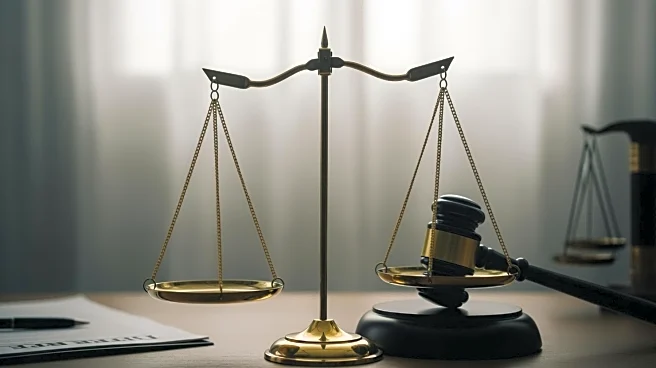What's Happening?
The Department of Justice (DOJ) is appealing a lower court's decision that blocked the detention and removal of Mahmoud Khalil, an activist and lawful permanent resident in the United States. DOJ lawyer
Drew Ensign argued before the U.S. Court of Appeals for the 3rd Circuit that the New Jersey district court's decision was 'fundamentally flawed' and should be reversed. The case revolves around Khalil's alleged violation of immigration laws due to his advocacy for Palestine and perceived sympathy for Hamas. Khalil was initially arrested and deemed removable by an immigration judge, but a federal judge later blocked this decision, citing a violation of Khalil's First Amendment rights. The DOJ contends that the immigration courts are the appropriate venue for such cases, not the district court.
Why It's Important?
This case highlights the ongoing legal and constitutional debates surrounding noncitizens' rights in the U.S., particularly in the context of national security and free speech. The outcome could set a precedent for how similar cases are handled, potentially affecting the rights of other noncitizens facing deportation due to their political beliefs or speech. The DOJ's stance reflects the broader governmental approach to balancing national security concerns with constitutional protections, a topic of significant public and legal interest. The decision could impact the legal strategies of immigration lawyers and the future of immigration policy in the U.S.
What's Next?
The appellate court has not yet announced when it will issue a decision, but it could come at any time. The ruling will likely influence future cases involving the intersection of immigration law and constitutional rights. Depending on the outcome, there may be further legal challenges or appeals, potentially reaching higher courts. The case also has the potential to spark public debate and influence policy discussions on immigration and national security.









